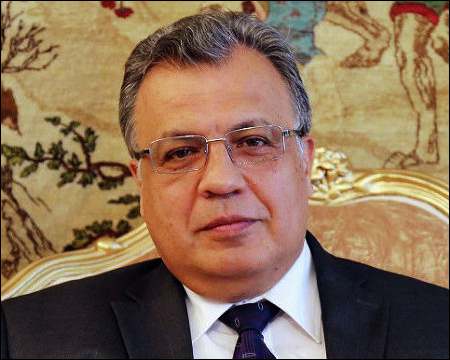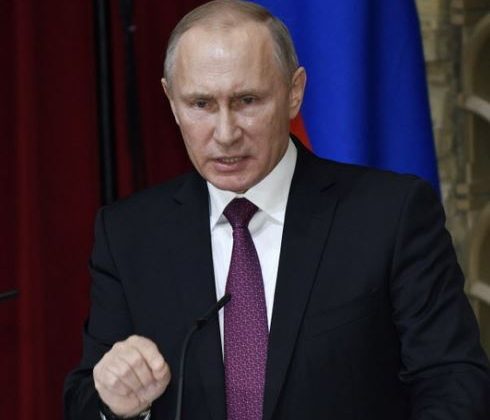(LRB Blog) At 7.05 p.m. Turkish time yesterday, the Russian ambassador, Andrei Karlov, was shot dead in an Ankara art gallery, while visiting an exhibition entitled Russia through Turkish Eyes. The assassin, Mevlüt Mert Altıntaş, an off-duty Turkish police officer in a suit and tie, calmly shot Karlov in the back several times; spoke in Turkish about Aleppo, with his hand in the air, one finger pointed upward (a jihadi sign, symbolising ‘takbir’, the greatness and oneness of Allah); and then said, in accented Arabic, a few sentences associated with Jabhat al-Nusra. (We can be sure of all this because the shooting was captured by an Associated Press photographer.) Altıntaş was killed by security forces who stormed the building. Vladimir Putin was informed of the assassination while on his way to watch a play written by Alexander Griboyedov, Nicholas I’s ambassador to Persia, who was killed in 1829 when a mob stormed the Russian embassy in Tehran.
Karlov did not have his own security detail in Ankara. Turkey, which has been under a ‘state of emergency’ since the failed coup attempt in July, seems to have been surprisingly lax about security at the-Russian sponsored exhibition. The Turkish government has made strenuous efforts to lay the blame for the humanitarian crisis in East Aleppo on Assad and Iran alone, but there were mass protests in front of the Russian embassy all last week. Erdoğan and Putin may very well have been reconciled in July, and by all indications have struck a power-sharing deal in Syria, but Erdoğan’s base, galvanised for many years by his vehement anti-Assad rhetoric, do not seem ready to follow him in this U-turn.
Both Russian and Turkish officials declared immediately after the assassination that the real target was Russian-Turkish friendship. Despite his self-proclaimed association with al-Nusra, the Syrian conflict and his ‘takbir’ sign, many Turkish pro-government sources have already labelled Altıntaş a ‘Gülenist’: yet another member of the shadow movement that President Erdoğan blames for all Turkey’s problems, from the 15 July coup attempt to the downing of a Russian jet on the Syrian border in 2015. The people propagating this theory point to the well-documented infiltration of the police force by Gülenists, the fact that the assassin’s brother-in-law used to work at a ‘Gülenist’ school, reports that the assassin was on leave from duty from 16 to 18 July, and the fact that the assassin made the takbir sign with left-hand, which supposedly disqualifies him as a genuine believer. […]
Read More © LRB Blog










